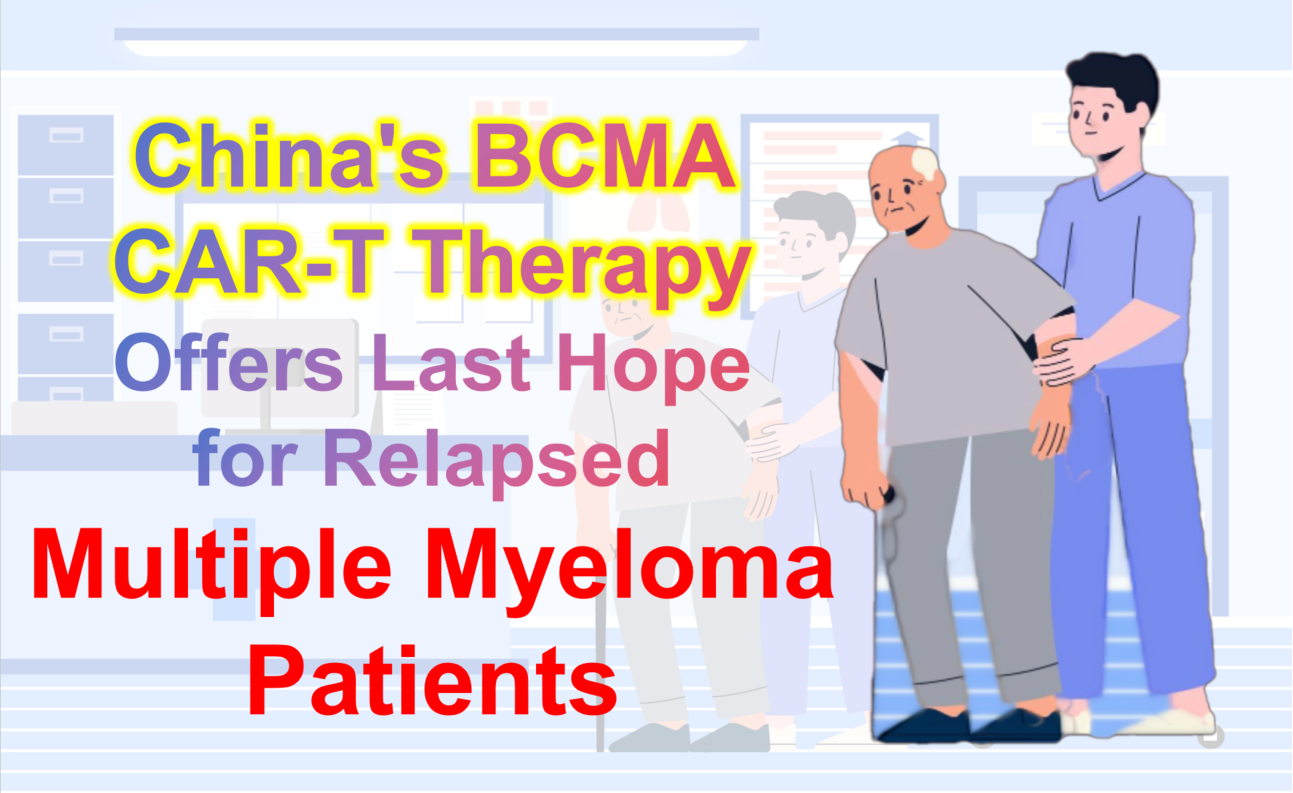China’s BCMA CAR-T Therapy Offers Last Hope for Relapsed Multiple Myeloma Patients
### China’s BCMA CAR-T Therapy Offers Last Hope for Relapsed Multiple Myeloma Patients

CAR-T Therapy
Multiple myeloma remains a difficult-to-cure disease, and every year, countless patients around the world face this devastating diagnosis. While treatment options have improved in recent years, and patients’ survival times have extended, drug resistance remains a significant challenge. For patients who have experienced multiple relapses and are resistant to various treatments, the future can seem bleak. Fortunately, with the emergence of **BCMA CAR-T cell therapy**, a new ray of hope is illuminating the path for these patients.
This is the story we’re sharing today, about a 76-year-old female patient who regained control of her life through CAR-T therapy.
#### The First Encounter with the Disease
In 2020, this Chinese 76-year-old woman noticed a decline in appetite and a rapid weight loss, accompanied by persistent rib pain. She had no idea that these symptoms were early signs of multiple myeloma. After several medical tests, her Chinese doctors confirmed the diagnosis: 31% of her bone marrow cells were plasma cells, her M-protein levels reached 85.7 g/L, and calcium levels in her blood were abnormally high. Multiple bones throughout her body also showed signs of significant damage.
The diagnosis left the patient shocked and confused. Multiple myeloma wasn’t her first health challenge; she also had a history of Parkinson’s disease. However, she remained hopeful, believing that with the right treatment, her condition could be controlled. But fate had other plans.
#### The Struggle and Relapse
At the beginning of 2023, the patient’s condition relapsed rapidly. Due to a prolonged lack of regular treatment, her disease worsened, and she became resistant to many standard therapies. After extensive tests, her medical team discovered that she had a high-risk mSMART 3.0 profile, with genetic abnormalities including 1q21 amplification and a t(4;14) translocation, making her prognosis extremely poor. She was now considered a “triple-refractory” patient, resistant to three main treatment categories.
Faced with this complex and challenging situation, the Chinese doctors didn’t give up. After multiple discussions and research, they recommended a cutting-edge therapy — **BCMA CAR-T cell therapy**. This treatment involves modifying the patient’s immune cells to target and destroy cancer cells. However, to undergo this advanced therapy, the patient first needed to undergo **bridging treatment** to reduce the tumor burden in her body.
#### Bridging Treatment: A Turning Point
To prepare for CAR-T therapy, the Chinese doctors initially prescribed the **DKD regimen**, a combination therapy intended to quickly reduce the cancer cell load. However, the first treatment cycle didn’t bring significant improvement, and her free light chain levels remained high. Both the patient and her family felt disappointed, but the Chinese doctors acted quickly, switching to the **KAD regimen**, which included **liposomal doxorubicin** to further enhance the treatment’s effectiveness.
This adjustment brought immediate results. After a few weeks, her free light chain levels began to drop, and her condition showed partial remission (PR). This meant she was finally ready for CAR-T cell therapy.
#### The Miracle of CAR-T Therapy
CAR-T therapy is a breakthrough technology where the patient’s immune cells are extracted, genetically modified to recognize and destroy cancer cells, and then reintroduced into the body. These engineered cells act like precision-guided weapons, specifically targeting her cancer cells.
The patient responded positively to the treatment. Within just a few weeks, her condition was significantly controlled, with results showing a very good partial response (VGPR). For such a complex case of relapsed and refractory disease, this was a major success.
